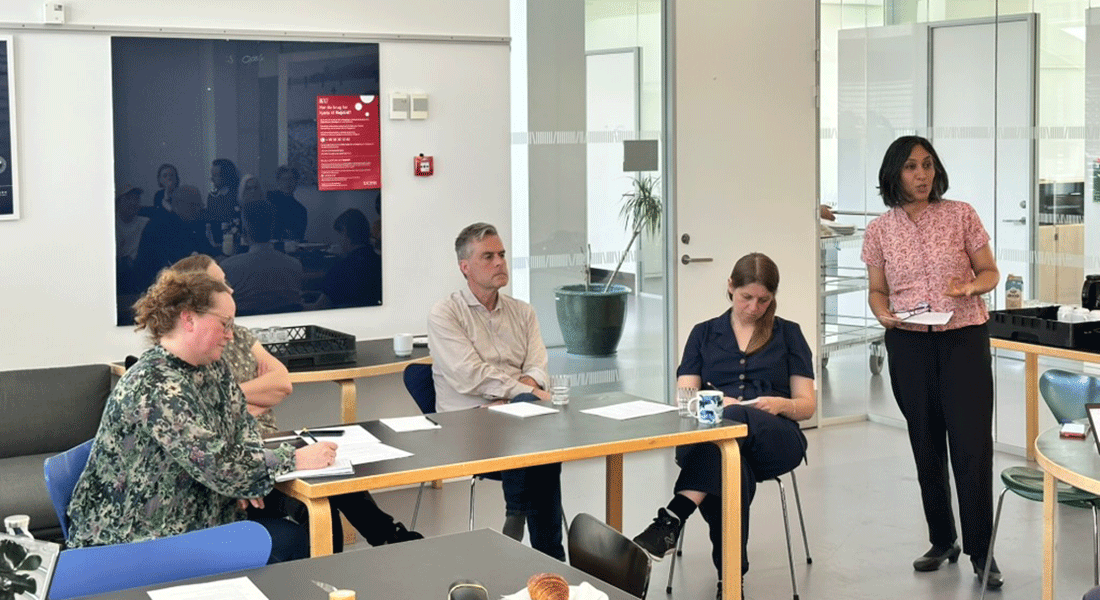Thinking Collectively through Ecological Crisis
In April 2025, researchers from the Centre for Contemporary Buddhist Studies contributed to the seminar ‘Challenges related to climate, environment and sustainability around the world’ at the University of Copenhagen’s Department of Cross-Cultural and Regional Studies.

Organised by the Global Perspectives on Climate, Environment, and Sustainability research cluster, the event gathered scholars to reflect on the role of Environmental Humanities in confronting global ecological crises.
The seminar featured a rich range of perspectives from Europe, Asia, North America, and the Middle East. We joined colleagues from the department to share our research on Buddhism and waste in Asia.
 Trine Brox presented her work on waste management initiatives in Dharamshala, India, highlighting how smart bin technologies often clash with local practices and landscapes. She reflected on the politics of scale, technological failure, and how unmanaged waste threatens fragile ecosystems and alters human—non-human relations, framing waste as a central political and environmental issue in the Indian Himalayas.
Trine Brox presented her work on waste management initiatives in Dharamshala, India, highlighting how smart bin technologies often clash with local practices and landscapes. She reflected on the politics of scale, technological failure, and how unmanaged waste threatens fragile ecosystems and alters human—non-human relations, framing waste as a central political and environmental issue in the Indian Himalayas.
Paulina Kolata discussed the dynamics of food waste within Japanese Buddhist ritual economies, using video excerpts from her ethnographic film in progress, part of the REFUSE project. Her footage included scenes from the segaki (施餓鬼) ritual of feeding the hungry ghosts, filmed in rural Shimane in 2024. She explored the tensions between Buddhist values, ritual care, and everyday consumption. She also reflected on teaching strategies for the Anthropocene, emphasising the need for interdisciplinary, collaborative, and ethically grounded pedagogy. Drawing on her experience of co-leading the 2024 PhD Course ‘Waste: Cultural Imaginaries and Materiality’, she highlighted how cultural, ethical, and material aspects of waste can be integrated into education to address local and global environmental challenges.
The PhD course was a collaborative effort led by Saskia Abrahms-Kavunenko, Trine Brox, and Paulina Kolata, with guest lectures by Gauri Pathak (Aarhus University) and Hervé Corvellec (Lund University). It attracted students across disciplines to explore topics such as theorising waste, toxic and leaking materialities, plastics and capitalism, distribution of waste networks, and waste imaginaries and trajectories. Over three days, participants investigated how cultural imaginaries, beliefs, and aesthetics shape waste practices, offering a powerful example of how to engage students in complex, often uncomfortable discussions around ecological crisis.
Overall, the seminar showcased the department’s vibrant environmental research across global regions and disciplines, revealing rich opportunities for future collaboration and inspiring reflections on the pedagogical challenges of teaching sustainability.
